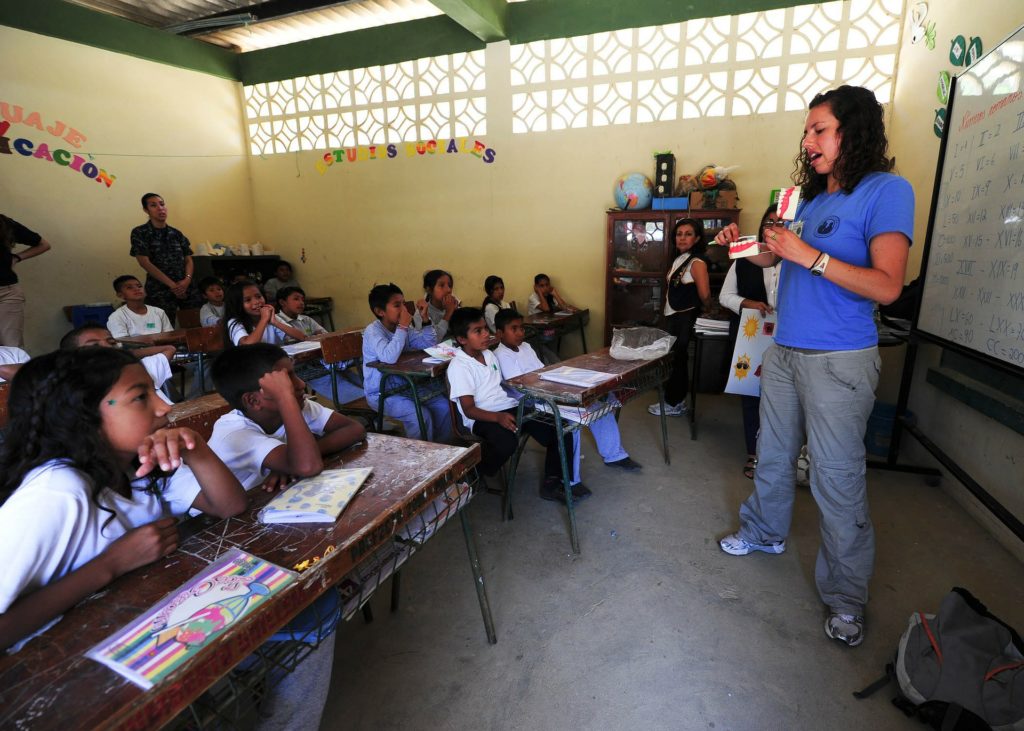
The desire to be a teacher is something that a lot of people carry with them from a very young age. It’s right up there with astronaut and fireman when you’re asking children about what they want to be when they grow up. As a young person matures, however, that desire might stay with them and very well become the path they want to take. Perhaps they’re good with children or they’re passionate about education. As a parent, there’s a lot you can do for a child who really wants to become a teacher and will make every effort to see that dream become a reality.
Be real with them
It’s easy to grow up with a romanticized idea of what it means to be a teacher. For our generation, watching the Dead Poets Society shaped that romantic idea for a lot of people. The new generation might be a bit more connected with the reality of being a teacher thanks to the internet but it’s important to make sure that an idealistic idea of what it means to be a teacher will thoroughly ruin their chances of enjoying their career. Talk to them about both the pros and the cons. Yes, they can shape young minds and if they feel the calling they should go for it. However, it might also involve dealing with troublesome students, belligerent parents, and a system that often doesn’t allow them as much flexibility to teach as effectively as they would like.
Know their requirements
Different states and different careers have a lot of different requirements. If your child wants to go into education, then majoring in it is usually required. They may then require further certification to teach children, as well as being subjected to background checks and be required to have up-to-date vaccines. If they want to teach in further education, then they’re likely going to need a Masters or a PhD in their field of choice. On top of that, they may need both experience in the industry they’re teaching and some academic publication credentials.
Know the career is changing
The skills that it takes to become a teacher nowadays aren’t necessarily the same skills their teachers had while they were growing up. Curriculums and teaching methods change all the time. But perhaps the most notable change is the trend in the inclusion of technology in the classroom. Besides training a teacher, it’s a good idea to help your child get more computer literate. There’s a good chance they’re already more computer literate than you, but many still grow up without truly mastering these skills and focusing on them can prepare them for the more practical side of a future teaching career.
Keep their options broad
Many people get into the classroom just to find out that it’s not for them. But that doesn’t mean that their enthusiasm for educating others and the skills they’ve build up to that point are useless. There are many ways they can branch out from a traditional career in education. They can specialize in teaching children with disabilities. They can go private and work as a tutor on a one-to-one basis. They can apply teaching skills to the world of business and become a corporate skills trainer. By going through online TESOL graduate programs, they can even be qualified to teach overseas. They can go from classroom to company meeting room to an entirely different country. Teaching has a lot more career mobility than many expect if they don’t look at their options. They’re never stuck if they find they’re not in the career they want.
Find their fit
It’s not just that your child might be able to teach in a different physical environment to a different demographic. They can take their passion for education into an entirely different space. For instance, more people are making careers from teaching online, whether it’s providing e-learning lectures or preparing and distributing materials for distance learning. Others are moving to work in behind the scenes of the education systems as consultants and advisors. Again, this gives your child a better knowledge of the different branches they can take from becoming a teacher. It’s a way to support that passion and calling while also keeping their thinking practical.
